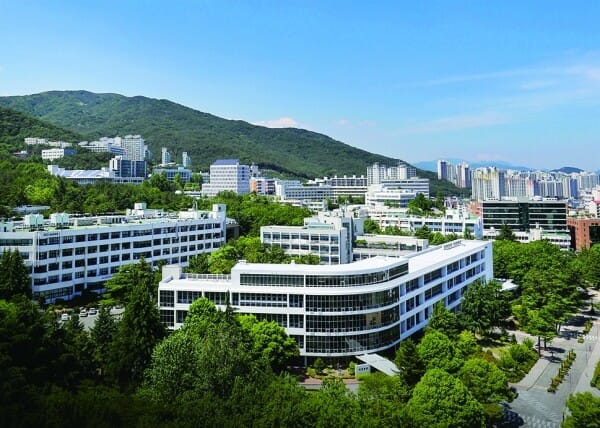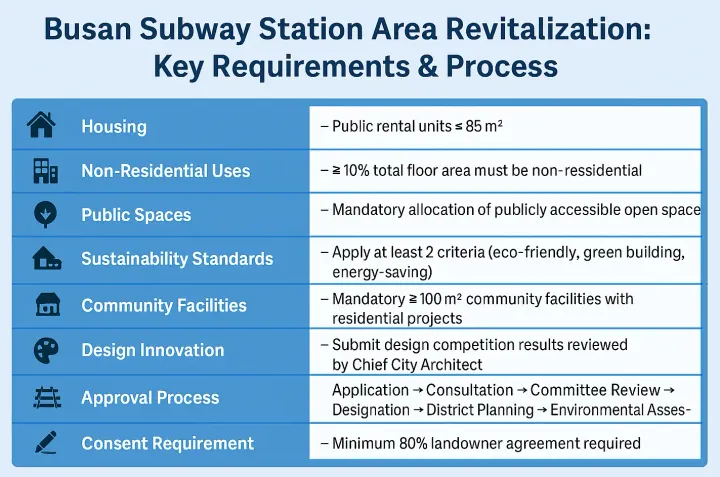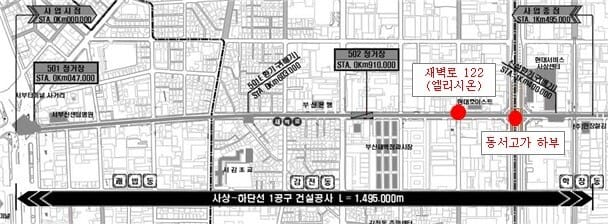Saving Schools Is Not Enough: How Korea Must Reinvent Teacher Preparation
Institutional mergers may address enrollment declines, but without upgrading teacher training standards, Korea’s education competitiveness will continue to erode.

BUSAN, South Korea — Recent college admissions data reveal a steep decline in competitiveness among colleges of education and education faculties nationwide, with students admitted at significantly lower academic thresholds than in previous years. At the same time, the country’s shrinking birth rate and corresponding decrease in student numbers are triggering a rapid contraction of the national teaching workforce.
In response, the government’s "Glocal University" project has initiated a wave of university mergers designed primarily to ensure institutional survival.
One of the highest-profile examples is the planned 2027 merger between Pusan National University and Busan National University of Education. While these efforts are framed as strategies for revitalization, they risk overlooking a fundamental truth: Korea’s real challenge is not preserving its institutions, but redesigning its teacher training system to meet the demands of a rapidly changing world.
"In an era of fewer students and fewer schools, the role of the teacher must be reimagined—not merely rescued."
Without structural reform, even the most well-intentioned mergers may fail to address the deeper issues undermining the teaching profession.
Structural Issues Behind the Crisis
For decades, South Korea maintained a bifurcated teacher training system:
Colleges of Education focused on producing elementary school teachers, while faculties of education at comprehensive universities trained secondary school educators. This division made sense in a period of rapid educational expansion, when quantity was a higher priority than flexibility.
Today, however, this system shows signs of deep fatigue. The sharp boundary between elementary and secondary teacher training no longer aligns with modern educational needs, which increasingly demand integrated competencies—digital literacy, psychological support, differentiated instruction—that transcend traditional grade-level distinctions.
At the same time, the prestige and appeal of teaching as a career have eroded.
Rising administrative burdens, exposure to legal risks, pressure from parents, and stagnant wages have contributed to a sharp increase in teacher attrition and declining morale across the sector. Surveys conducted by the Seoul Education Research Institute show that nearly 43% of elementary school teachers would leave the profession if given the opportunity, with over 60% attrition intent among teachers with 4 to 13 years of experience.
Despite these profound changes, South Korea’s teacher education system has remained largely static. Programs continue to operate on outdated assumptions about stable demand and traditional pedagogy, with little structural adaptation to demographic realities or evolving school environments.
Government efforts like the "Glocal University" initiative, while well-meaning, primarily target institutional survival by merging campuses and expanding regional partnerships. They stop short of tackling the core problem: the urgent need to reimagine how teachers are trained, not just where.
The Limits of the Glocal University Strategy
The planned 2027 merger between Pusan National University (PNU) and Busan National University of Education (BNUE) has emerged as a symbolic centerpiece of the government's "Glocal University" project. Framed as an innovative response to Korea’s shrinking student population and the mounting fiscal challenges facing regional institutions, the merger is intended to create a comprehensive educational hub under the Pusan National University brand, with BNUE reorganized as its newly established College of Education.
Officially, the goals are sweeping. The new entity aims to integrate elementary, secondary, and lifelong education training within a single administrative and academic framework, modernize teacher preparation programs, and enhance the region’s global competitiveness.
However, the merger has not been universally welcomed. Within BNUE, students and faculty members have expressed serious concerns about the transparency of the process and the future of specialized elementary teacher education. Student groups have staged protests and even boycotted classes, warning that the distinctive focus and culture of elementary teacher preparation risk being diluted or lost entirely within the broader institutional structure of PNU.
These tensions are not isolated complaints. They expose deeper structural problems within the broader "Glocal University" strategy itself—problems that threaten to undermine its very rationale.
At its core, the Glocal initiative focuses heavily on institutional survival: preventing closures, consolidating campuses, and maximizing funding eligibility.
Yet in doing so, it risks prioritizing administrative efficiency over academic integrity. Teacher education, in particular, demands a specialized environment that fosters deep pedagogical expertise and sustained professional development.
When merged into larger, multidisciplinary universities, education faculties often find themselves marginalized, overshadowed by disciplines considered more economically or strategically valuable, such as engineering, business, or biotechnology.
Moreover, the short-term survival logic embedded in the Glocal model often crowds out the more fundamental question of educational innovation.
Redesigning curricula, strengthening clinical practice components, and elevating research standards in teacher education require long-term investments that cannot be achieved through mergers alone. Survival may keep the doors open, but it does not guarantee that the quality of what happens inside those doors will meet the evolving demands of Korean society.
Finally, while Glocal universities aim to revitalize local communities, there is a real danger that they could inadvertently deepen regional inequalities. As smaller, specialized institutions are absorbed, there is a risk that educational expertise and training opportunities will become increasingly centralized in dominant urban hubs, leaving peripheral regions even further behind.
"When the priority becomes saving institutions rather than strengthening professions, the cost is often paid by the very communities those institutions were meant to serve."
The PNU-BNUE merger, in this light, stands as both an opportunity and a warning. Without a deliberate, future-oriented commitment to preserving and enhancing the specialization of teacher education, the integration risks becoming a short-lived administrative fix rather than a true educational reform.
It raises the pressing question of whether Korea’s response to its educational crisis will be transformative—or merely tactical.
How Leading Countries Handle Teacher Education
While Korea wrestles with the challenges of institutional mergers and systemic fatigue, several leading countries offer compelling models for how teacher education can be reimagined—not merely to survive demographic shifts, but to thrive in spite of them.
Finland, often cited as a gold standard in global education, provides a particularly instructive example. Rather than isolating teacher training within specialized colleges, Finland embeds it within major research universities. Aspiring teachers are required to complete a master's degree that integrates rigorous academic research with practical teaching preparation. The program emphasizes not only mastery of subject matter but also educational psychology, curriculum design, and clinical teaching practice. In Finland, teaching is seen not as a fallback career, but as a highly selective and prestigious profession on par with medicine and law.
Germany’s system, too, offers important lessons. Teacher education there unfolds in two carefully sequenced stages: an initial university-based academic program, followed by an extended in-school internship known as the Referendariat.
Throughout this process, future teachers are assessed on both theoretical knowledge and practical classroom skills, culminating in a demanding state examination. The structure ensures that teachers enter the profession with both deep disciplinary expertise and substantial real-world experience.
Meanwhile, in the United Kingdom, the focus has shifted towards postgraduate professionalization. Through programs like the Postgraduate Certificate in Education (PGCE), prospective teachers complete a rigorous one-year course that blends university coursework with extensive, mentored teaching placements in schools. The approach seeks to bridge the traditional gap between academic theory and the practical demands of diverse, rapidly evolving classroom environments.
Across these varied systems, a common thread emerges: teacher education is treated not as an administrative function of higher education, but as a national investment in the future. In these countries, teacher preparation is rigorous, research-driven, and rooted in a clear understanding that educational quality depends fundamentally on teacher quality.
"Where teaching is treated as a true profession, training is neither rushed nor compromised."
These international examples underscore a crucial point: if Korea’s response to its education challenges is limited to institutional mergers without a simultaneous elevation of teacher preparation standards, it will fall further behind in a global competition increasingly defined by the quality of human capital.
Building a True Integrated College of Education
If Korea hopes to turn its current educational challenges into an opportunity for renewal, it must move beyond the administrative mergers of the Glocal University initiative and undertake a deeper transformation of its teacher training system.
The first step should be the creation of regional Integrated Colleges of Education, anchored within major comprehensive universities but granted a high degree of academic autonomy. These colleges should not simply be absorbed into larger institutions as ordinary faculties; rather, they should be structured as distinct, mission-driven entities focused squarely on the professional formation of future educators.
Curricular reform must lie at the heart of this transformation. Instead of maintaining rigid divisions between elementary and secondary teacher preparation, integrated colleges should offer a unified core program that emphasizes shared foundational competencies: educational psychology, curriculum design, digital literacy, parent-school communication, and child and adolescent development. Students would then specialize in particular educational stages—early childhood, elementary, secondary, or special education—through advanced coursework and practical placements.
Moreover, Korea should adopt a 4+1 academic structure for teacher training, following global best practices. Prospective teachers would complete a rigorous four-year undergraduate degree, followed by a mandatory one-year professional master's program focused on clinical practice, research, and reflective pedagogy.
Such a system would elevate teaching to a genuine graduate-level profession and ensure that newly qualified teachers are equipped not only with theoretical knowledge but also with the practical skills demanded by contemporary classrooms.
To maintain high standards throughout the process, teacher candidates should undergo a two-stage qualification screening: once upon admission to the program, and again after completing core courses and initial practicum experiences. This approach would help ensure that only those with both the academic capability and professional disposition necessary for effective teaching continue to the final stages of certification.
Critically, the future of teacher education must also embrace career diversification.
Integrated Colleges of Education should prepare students not only for traditional classroom roles, but also for careers in educational technology, curriculum development, school leadership, counseling, and policy analysis. In a rapidly changing educational landscape, flexibility and adaptability will be as important as subject expertise.
"True reform lies not in preserving the old forms, but in building new pathways for the educators of tomorrow."
If designed with these principles in mind, the PNU & BNUE merger and similar initiatives across the country could yet become catalysts for a renaissance in Korean teacher education—offering a model not of survival, but of genuine leadership in a global era.



Comments ()